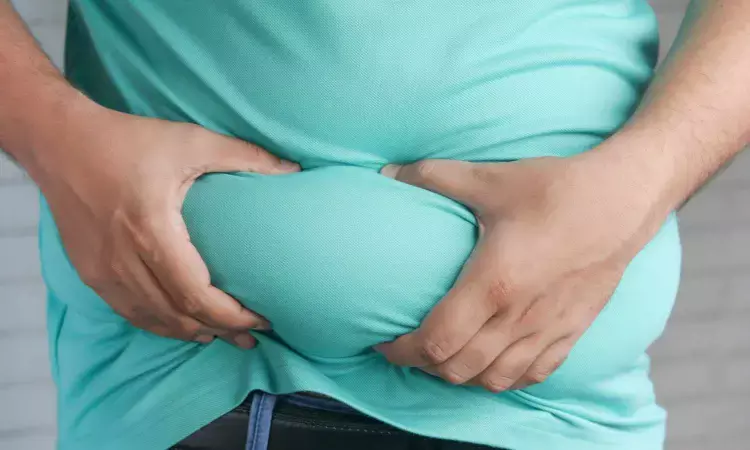- Home
- Medical news & Guidelines
- Anesthesiology
- Cardiology and CTVS
- Critical Care
- Dentistry
- Dermatology
- Diabetes and Endocrinology
- ENT
- Gastroenterology
- Medicine
- Nephrology
- Neurology
- Obstretics-Gynaecology
- Oncology
- Ophthalmology
- Orthopaedics
- Pediatrics-Neonatology
- Psychiatry
- Pulmonology
- Radiology
- Surgery
- Urology
- Laboratory Medicine
- Diet
- Nursing
- Paramedical
- Physiotherapy
- Health news
- Fact Check
- Bone Health Fact Check
- Brain Health Fact Check
- Cancer Related Fact Check
- Child Care Fact Check
- Dental and oral health fact check
- Diabetes and metabolic health fact check
- Diet and Nutrition Fact Check
- Eye and ENT Care Fact Check
- Fitness fact check
- Gut health fact check
- Heart health fact check
- Kidney health fact check
- Medical education fact check
- Men's health fact check
- Respiratory fact check
- Skin and hair care fact check
- Vaccine and Immunization fact check
- Women's health fact check
- AYUSH
- State News
- Andaman and Nicobar Islands
- Andhra Pradesh
- Arunachal Pradesh
- Assam
- Bihar
- Chandigarh
- Chattisgarh
- Dadra and Nagar Haveli
- Daman and Diu
- Delhi
- Goa
- Gujarat
- Haryana
- Himachal Pradesh
- Jammu & Kashmir
- Jharkhand
- Karnataka
- Kerala
- Ladakh
- Lakshadweep
- Madhya Pradesh
- Maharashtra
- Manipur
- Meghalaya
- Mizoram
- Nagaland
- Odisha
- Puducherry
- Punjab
- Rajasthan
- Sikkim
- Tamil Nadu
- Telangana
- Tripura
- Uttar Pradesh
- Uttrakhand
- West Bengal
- Medical Education
- Industry
Tirzepatide Outperforms Testosterone in Boosting Hormones and Body Composition in Obese Men: Pilot Study

Italy: Tirzepatide (TZP), a dual receptor agonist for glucose-dependent insulinotropic peptide (GIP) and glucagon-like peptide-1 (GLP-1), may offer significant therapeutic benefits for men with obesity-related hypogonadism, according to new findings published in Reproductive Biology and Endocrinology. The pilot study was led by Dr. Rossella Cannarella from the Department of Clinical and Experimental Medicine at the University of Catania, Italy.
Metabolic hypogonadism, a condition marked by low testosterone levels and frequently seen in obese individuals, contributes to worsening metabolic health and an increased risk of type 2 diabetes. Addressing this condition through weight management and hormonal correction is crucial for improving overall health outcomes.
The controlled study involved 83 obese men diagnosed with metabolic hypogonadism. Participants were divided into three groups: one group (Group A) received tirzepatide starting at 2.5 mg per week and increased to 5 mg from the second month; another (Group B) received lifestyle intervention alone with no pharmacologic treatment; and the third (Group C) was treated with transdermal testosterone. All participants followed a low-calorie diet and engaged in 20 minutes of daily brisk walking.
Clinical evaluations were carried out over two months and included assessments of body composition, eating behavior using the Binge Eating Scale (BES), erectile function using the IIEF-5 questionnaire, and hormone levels including testosterone, LH, FSH, SHBG, and estradiol. Free and bioavailable testosterone levels were also calculated.
The study led to the following findings:
- Patients treated with tirzepatide showed the most significant overall improvements.
- These individuals experienced greater reductions in weight, waist circumference, body fat, and binge eating scores.
- Lean muscle mass and erectile function scores increased significantly in the tirzepatide group.
- There was a notable improvement in total, free, and bioavailable testosterone levels in these patients.
- In comparison, those receiving transdermal testosterone or no treatment did not exhibit similar comprehensive benefits.
- Estradiol levels decreased significantly in the tirzepatide group.
- Levels of LH and FSH increased, indicating enhanced endogenous testosterone production.
- These findings suggest that tirzepatide may promote the body's natural hormonal balance rather than relying on external hormone replacement.
While the study offers encouraging insights, the researchers acknowledged certain limitations. The sample size was relatively small, the duration was short, and the treatment groups were not randomized. Additionally, no direct comparison was made with other anti-obesity drugs like semaglutide. Future trials with larger cohorts, longer follow-up, and comparative designs are warranted.
According to the authors, the study presents the first clinical evidence supporting tirzepatide as a potential treatment for metabolic hypogonadism in men with obesity. Its dual-action mechanism not only aids in weight loss but also appears to restore hormonal function, potentially reducing the risk of diabetes and improving quality of life.
"If confirmed in larger studies, tirzepatide may emerge as a valuable, multifaceted treatment strategy for managing obesity and its hormonal complications," the authors concluded.
Reference:
La Vignera, S., Cannarella, R., Garofalo, V. et al. Short-term impact of tirzepatide on metabolic hypogonadism and body composition in patients with obesity: a controlled pilot study. Reprod Biol Endocrinol 23, 92 (2025). https://doi.org/10.1186/s12958-025-01425-9
Dr Kamal Kant Kohli-MBBS, DTCD- a chest specialist with more than 30 years of practice and a flair for writing clinical articles, Dr Kamal Kant Kohli joined Medical Dialogues as a Chief Editor of Medical News. Besides writing articles, as an editor, he proofreads and verifies all the medical content published on Medical Dialogues including those coming from journals, studies,medical conferences,guidelines etc. Email: drkohli@medicaldialogues.in. Contact no. 011-43720751


